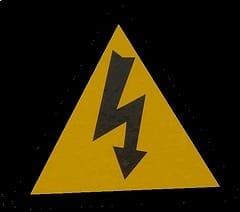
The accelerating change of technology we use commercially and personally is dramatically increasing the global demand for electric power.
As consumers, we’re gulping power at an alarming rate, from air conditioning systems, heating systems, household appliances, and all forms of home entertainment devices to cloud computing, computers, and consumer electronics. Over the past few years, we’re also plugging in electric vehicles at an ever increasing rate. And let’s not forget the industrial power needed to churn out all these products, as well as keep the other wheels of industry turning. In fact, global electricity demand has been projected to nearly double from the year 2010 to 2030.
It’s clear we’re already close to consuming more electricity than we can generate or distribute, as manifest through the rolling black and brown outs frequently seen during summer months where peak power demand is highest. The problem is we’re adding more demand for electricity (from everything mentioned above and more) than we’re adding capacity to supply it. With that said, we still need to stay cool and to turn on lights to see at night … and we’re certainly not going to turn off our home theater and gaming systems.
So what’s the answer? Expand power generation to meet growing demand? Not so fast. Investment in electric power generation and distribution is a slow, long-term proposition, and therefore has trailed well below the increase in GDP in most developed countries. In other words, no one has the appetite (or the capital) to build enough power plants and expand the grid to meet the rising demand for electricity.
A quick point of fact: Power generation—and the grid to distribute it—has to be scaled to meet peak demand. On average, power grids operate at around 80 percent capacity, so they’re ready to cover peak demand when those hot summer days roll around. If demand rises above that peak capacity, we experience those black and brown outs.
Additionally, 75 percent of the electricity generating capacity in the United States depends on the combustion of fossil fuels. This raises a multitude of other concerns, perhaps foremost that dependence on fossil fuels for electricity is causing severe environmental and health hazards, including large emissions of toxic air pollutants and greenhouse gases.
Over the past few years, thanks to technology developments such as fracking, which were impossible just a decade ago, we can now extract natural gas in very large quantities, and that has put the United States in a position of being an exporter of energy. The good news is that natural gas is far less polluting than other fossil fuels, such as coal, and the U.S. has very large reserves. On the other hand, the United States does not have an infrastructure for capitalizing on natural gas powered vehicles, and natural gas is a fossil fuel and does have harmful emissions, even if less than the others.
When we look at renewable energy sources such as wind, solar, and waves, great strides have been taken, but until we find a way to store electricity for use at a later time, these will help but not be game changing. The good news here is that there is a technology that is already changing the game.
What if we could increase energy production without adding new capacity? What if we could use the power we already generate more efficiently, rather than have to dramatically expand power generation? Enter the work that is being done to enable smart grids, smart homes, and smart cities to help us accomplish this. But will peak power demand modeling and technology that turns lights off in empty rooms be enough? Probably not for some time. That’s where promising energy storage technology comes in as a key change accelerator to help us use the electrical power we have now more efficiently.
The Latest Bing News on:
Future Of Energy
- Envision Energy Signs Landmark Agreement with Hero Future Energies to Supply 588 MW WTGson April 30, 2024 at 3:15 am
Envision Energy Signs Landmark Agreement with Hero Future Energies to Supply 588 MW WTGs - Envision Energy , a global leader in green technology , and Hero Future Energies , a leading Renewable ...
- Siemens and Mercedes-Benz Transform Future of Sustainable Factory Planning with Digital Energy Twinon April 30, 2024 at 3:07 am
The Digital Energy Twin reduces early phase planning time significantly Developed and tested in the Mercedes-Benz 'Factory 56' in Sindelfingen, Germany Showcases the value of Siemens' Xcelerator open ...
- Renuka Sharma Promoted to Director of Energy Solutions APAC at BayWa r.e.on April 30, 2024 at 2:57 am
With over 18 years of experience in multiple industries, Renuka has consistently demonstrated her prowess in navigating complex projects and accelerating the energy transition. Previously serving as ...
- Green And Cost Effective: What The Future Of Buildings Looks Likeon April 29, 2024 at 7:09 am
With buildings playing a crucial role in meeting sustainability targets while being cost effective, open digital platforms will be key to unlocking their potential.
- Battery EVs Might Not Be The Future Of Transport In China After Allon April 29, 2024 at 1:30 am
China's 50% new energy vehicle sales aren’t due to bumper shipments of battery electric vehicles but plug-in hybrids. Is the internal combustion engine making a comeback?
- A Lofty Future for Wind Energy, but State Goals Are No Breezeon April 25, 2024 at 2:25 pm
Business matters aside, the future is generally bright for offshore wind, leaders said at the 2024 International Partnering Forum for industry. Increasing state energy targets, however, present a ...
- The future of clean energy hinges on cybersecurityon April 23, 2024 at 11:00 am
In the long term, the energy sector needs coordinated, long-term collaboration to ensure that cybersecurity is a core tenet of clean energy. Close and frequent collaboration between the cybersecurity ...
- What is the future of home solar panels in 2024 and ahead?on April 21, 2024 at 3:12 pm
The global push towards sustainable and renewable energy solutions has placed solar panel power at the forefront of energy conversations.
- A clean energy future is within our reachon April 17, 2024 at 4:18 pm
A healthy future for our children and grandchildren depends on progress towards net-zero carbon emissions and a swift transition to clean energy.
- The future of energy development on Native lands signals a new eraon April 17, 2024 at 2:00 pm
In canceling the projects in February, FERC cited concerns raised by the Navajo Nation, including negative impacts on water, cultural and natural resources and biological diversity.
The Latest Google Headlines on:
Future Of Energy
[google_news title=”” keyword=”Future Of Energy” num_posts=”10″ blurb_length=”0″ show_thumb=”left”]
The Latest Bing News on:
Electricity generation
- TotalEnergies vying for AES renewable energy assets in Brazilon April 30, 2024 at 3:20 am
TotalEnergies has joined the race to acquire the renewable energy assets of AES in Brazil, Bloomberg has reported.
- Colorado’s two largest energy co-ops break from Xcel, Tri-State aiming for more local control and lower costson April 30, 2024 at 3:10 am
Sedalia’s CORE and Brighton’s United Power say they have enough merchant power leave Xcel and Tri-State in a bid to lower costs for customers ...
- SpaceX's Starship could help this start-up beam clean energy from space. Here's how (video)on April 30, 2024 at 2:59 am
When you purchase through links on our site, we may earn an affiliate commission. Here’s how it works.
- G7 energy ministers reach understanding on coal but nuclear remains contentiouson April 30, 2024 at 2:55 am
Energy and environment ministers from the Group of Seven (G7) countries meeting in Turin have reportedly reached a deal to shut down their coal-fired power plants in the first half of the 2030s.
- Mexico proudly controls its energy but could find it hard to reach its climate goalson April 30, 2024 at 2:36 am
Mexico's taking control of its oil from U.S. and British companies is taught in schools and celebrated every year.
- Solar Power Generation Unit on Top of Irpin Lyceum: Not Only About Energy Efficiencyon April 30, 2024 at 2:33 am
In the case of the Irpin Lyceum, it was about a hybrid form of energy supply from the very beginning. That is, today, the school is simultaneously connected to the traditional grid, as well as to ...
- 'Problematic power generation doubled electricity cost' in Philippineson April 30, 2024 at 1:57 am
The senator called for proactive measures to address the situation, urging the Department of Energy (DOE) to establish a task force to prepare for worsening conditions ...
- Singapore awards PacificLight Power contract for fast start generating unitson April 29, 2024 at 9:13 pm
The two generating units will start operations in Q2 2025. The Energy Market Authority (EMA) awarded PacificLight Power Pte Ltd (PLP) the right to build, own and operate two fast-start ...
- Specialty Rental Continues to Rock; Power Generation and Matting Carry Huge Growth Potential, Flannery Sayson April 28, 2024 at 8:33 pm
CEO Matthew Flannery talked about the significance of the specialty growth and the company’s acquisition of Yak Mats during its first quarter conference call with investors ...
- ‘Problematic power generation doubled electricity cost’on April 28, 2024 at 9:00 am
From P6 to P7 per kilowatt-hour, the cost of electricity has doubled to P11 per kwh due to problematic power generation, according to Sen. Sherwin Gatchalian. Gatchalian, vice chairman of the Senate ...
The Latest Google Headlines on:
Electricity generation
[google_news title=”” keyword=”electricity generation” num_posts=”10″ blurb_length=”0″ show_thumb=”left”]









